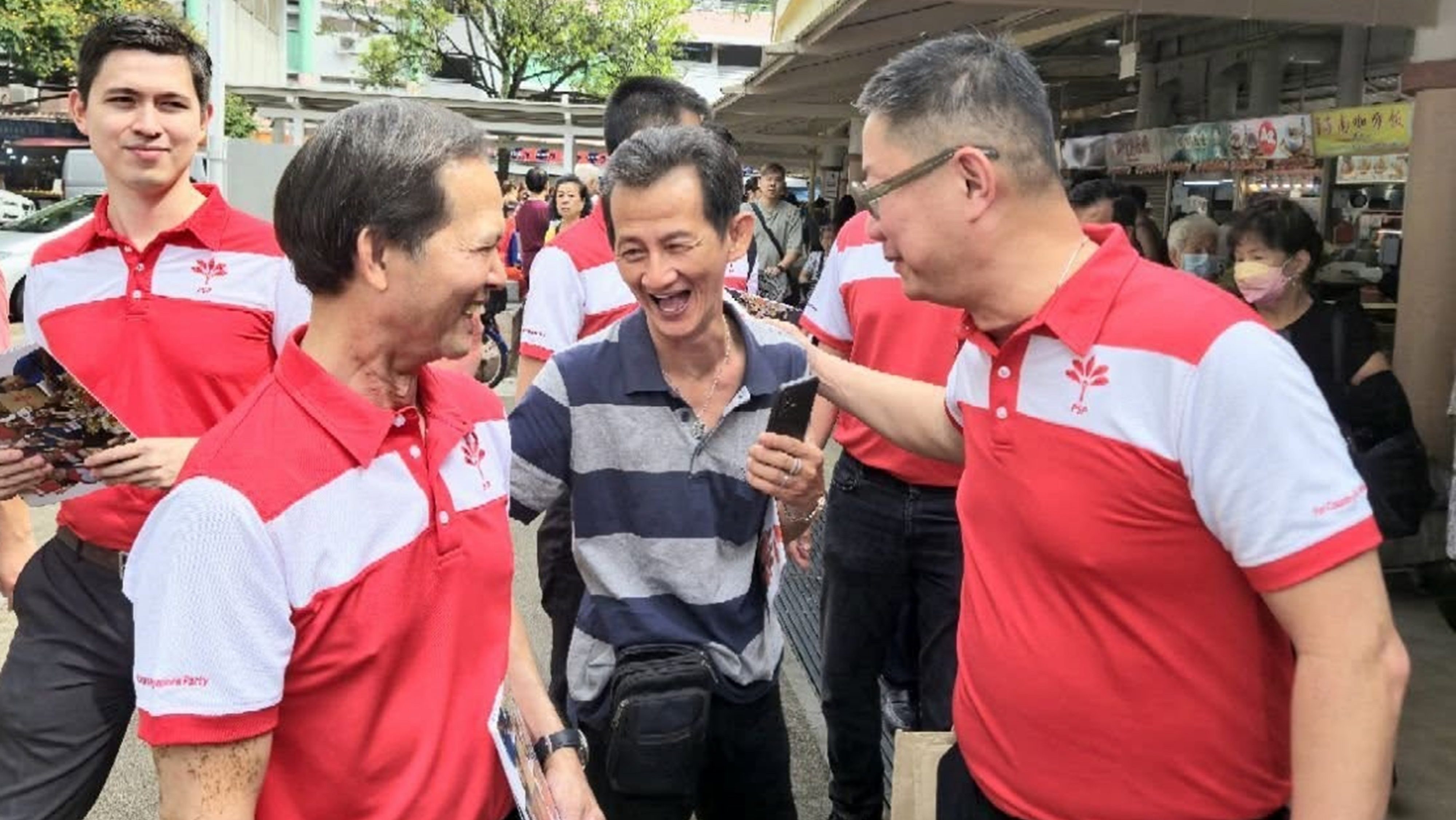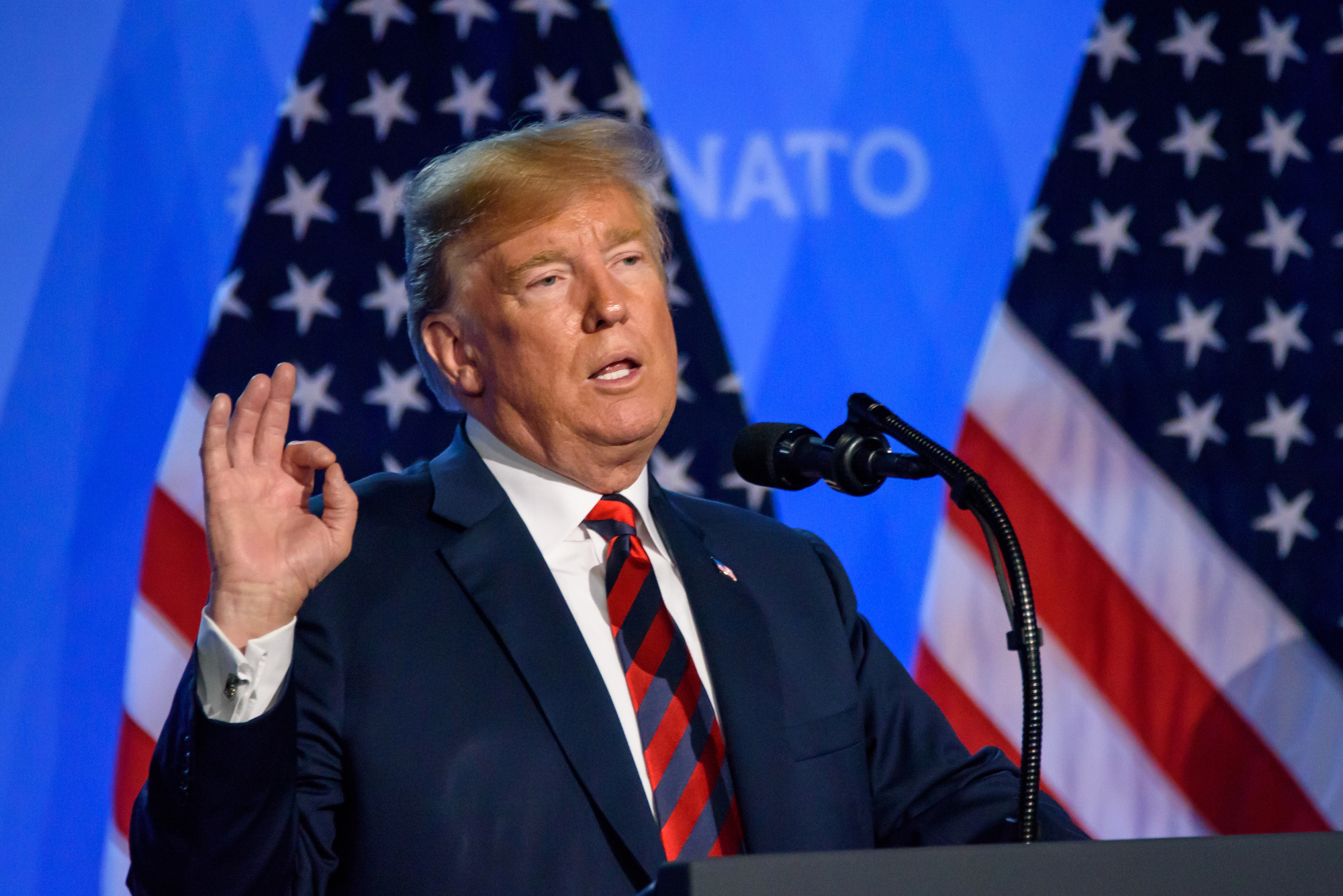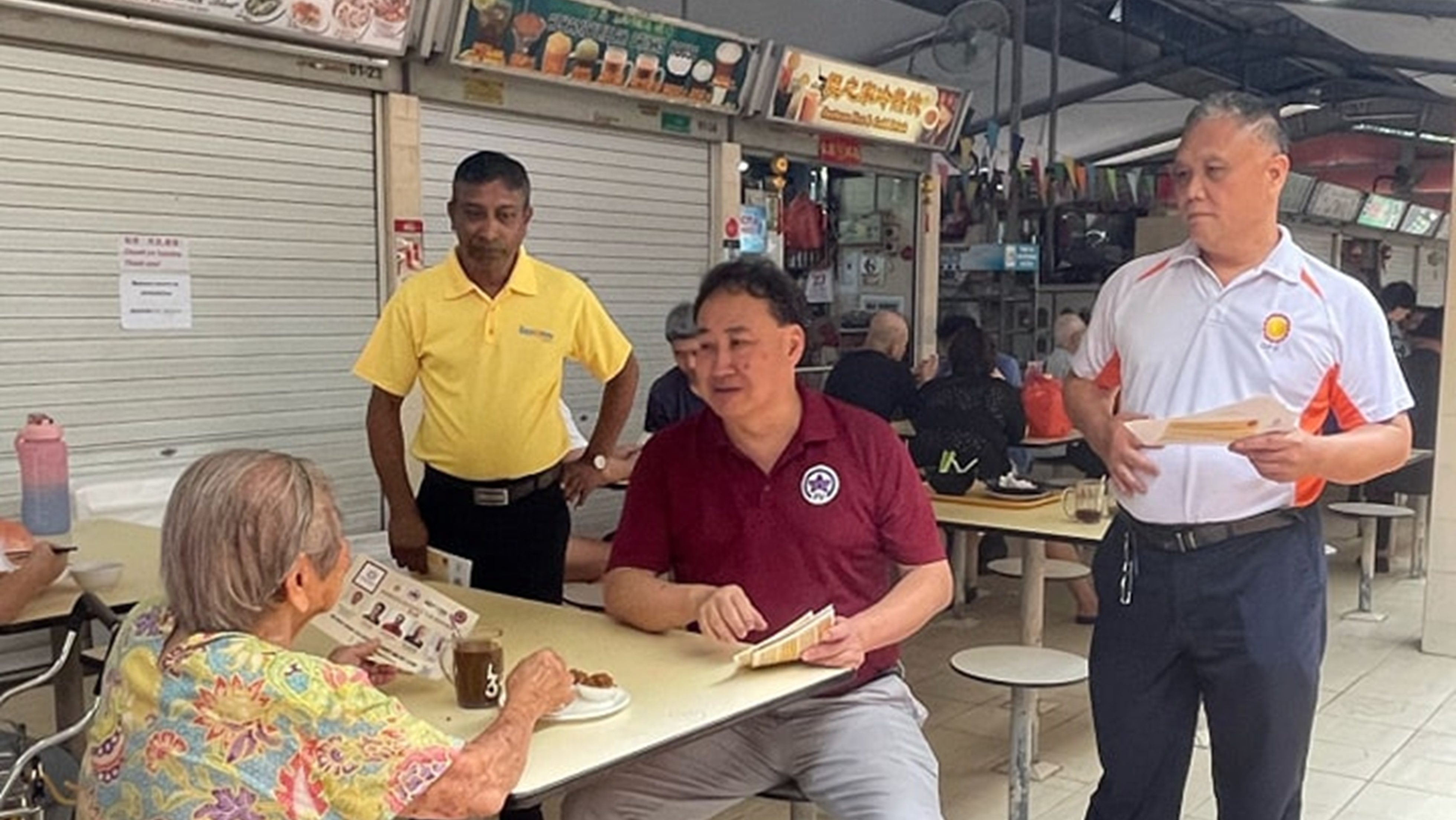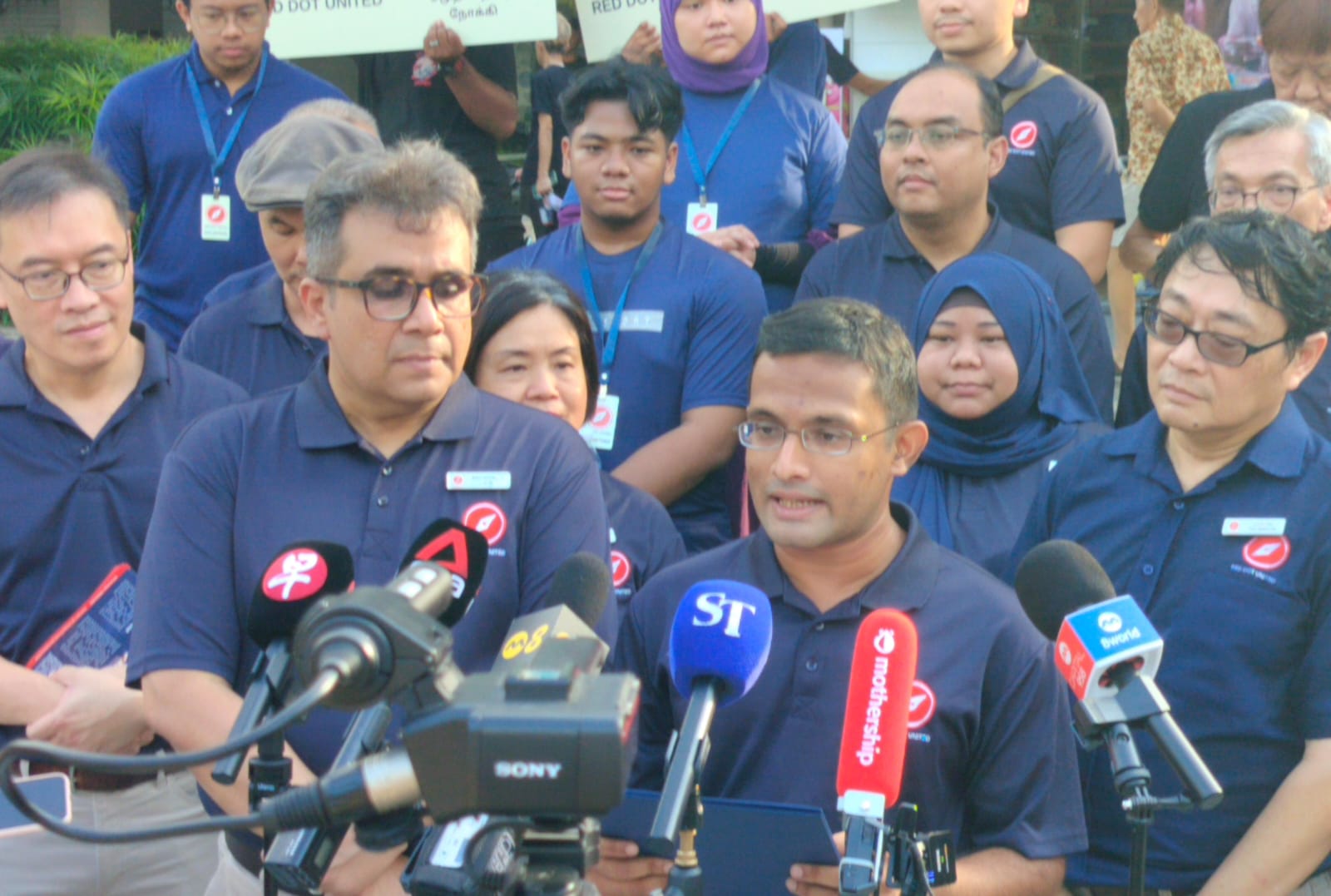
George Goh Ching Wah FB
OPINION: What is the point of the President?
As the presidential election heats up, it is easy to get caught up in the drama of it. Who has indicated an interest? Who qualifies? Who will win? But yet, have we stopped to think why there are so many seemingly unnecessary hoops for a presidential hopeful to jump through for a post that has no real political power at all?
Former People’s Action Party (PAP) stalwart, Tharman Shanmugaratnam, was the first to show his hand, announcing to great fanfare that he was intending to contest. Mr Shanmugaratnam is a popular politician, once tipped to be a potential Prime Minister of Singapore. Despite his repeated denials, numerous online surveys had kept that hope alive. Given his immense popularity, he has a good chance of winning the Presidential election.
Given that the last presidential election was a walkover for Madam Halimah which paved the way for her winning the election by default plus how popular Mr Shanmugaratnam is, it was somewhat surprising that there were other contenders willing to take the chance at standing against him. Businessman and philanthropist, George Goh, was the next man to throw his hat into the ring. Prior to the presidential race, Mr Goh was not a known name to the public. However, with his rags-to-riches story, wholesome family values and lack of connection to the establishment, he could well have been the perfect president. Yet, he has been rejected as a potential candidate by the Elections Department (ELD) on the basis that he had not met the running criteria.
While this may well be technically true, it does beg the question of why the criteria to be president is so ridiculously high anyway? The President’s role seems to be largely ceremonial. While he is meant to hold a second set of keys to the safeguarding of the national reserves, it is not a set of keys that has been withheld.

While this may well be technically true, it does beg the question of why the criteria to be president is so ridiculously high anyway? It is clear that the President performs only a ceremonial role. While he is meant to hold a second set of keys to the safeguarding of the national reserves, it is a well-known fact that it is not a set of keys that is ever really used. The last president to actively try to do this was the late Mr Ong Teng Cheong and he hit a brick wall every time he tried. So much so that he refused to serve another term and ended up ostracised by the rest of the establishment. When he died, the state did not even grant him a state funeral which to the public, seemed like a rejection of his legacy, given that he was a former President.
So, why is it so difficult to run for a position that has negligible power?
It is also imperative to remember that the office of the President is meant to be non-partisan and above party politics. Yet, despite this, all of our previous presidents have been either former PAP heavyweights and/or figures who are closely affiliated with the dominant ruling establishment. While all of them have resigned their positions before running and taking up office, do relationships simply end with a resignation? While I am not suggesting that there is anything illegal, it would be reasonable to wonder if sitting presidents would loathe to upset the apple cart by asking uncomfortable questions of their friends.
After Mr Goh announced his intention to run, he was quickly followed up by former GIC chief investment officer Ng Kok Song and former presidential hopeful Tan Kin Lian. While Mr Tan has made his non-establishment stance manifestly clear over the years, he was once the former CEO of NTUC. While NTUC is the national trade union, it is also no secret that NTUC is perceived as very much a Government affiliated organisation. As for Mr Ng, there is really no need to hone in on the fact that GIC is very much a Government-linked company.
It is clear that the only potential candidate with no known establishment connection was Mr Goh and he was the only candidate that has been disqualified from running. If the President is meant to be non-partisan and above party politics, it seems a real lost opportunity for Singaporeans that the only seemingly non-partisan candidate has been disqualified, leaving only Mr Shanmugaratnam, Mr Ng and Mr Tan in the running and Mr Tan, the only potential non-establishment candidate.
If the President is meant to be a ceremonial head of state who is above party politics, why is the bar set so high that virtually no non-establishment person would ever qualify? If the President is meant to be a public unifying figure who is non-partisan, why have ordinary Singaporeans not been officially asked about what qualities they would like their president to possess instead of these arbitrarily set and extremely difficult-to-meet criteria?
Netizens have made clear what sort of person they would like their president to be and in no way is having to hold all of these top positions in various companies something that Singaporeans appear to care about.
In a letter to this publication, a netizen said the following:
a) He must be upright, capable, caring and approachable. Therefore, the candidate must deeply understand and empathise with people’s hardships. In short, he is close to the people’s hearts; and must be able to bond with people from all walks of life.
b) The candidate should not have a string of political baggage or be closely linked to the ruling party. Thus, it underlines the critical importance of the candidate’s independence, mobility and decisiveness.
c) The president should not merely be a national symbolic figure that only appears at most national events. In reverse, he should voluntarily appear/present at any emergency, meaningful and unexpected events.
d) The candidate mustn’t be the official spokesperson or a remote proxy for the ruling party’s policies. Otherwise, it will defeat the meanings, significance and entrusted mission, objectives, obligations and authority of the presidency.
e) How to identify, persuade or demonstrate to all the people of Singapore that he is the unifying national figure of a multiracial, multicultural and multi-religious society like Singapore should be another key, expectable and watchable criterion for the presidential hopeful. It is especially critical at this juncture of global turbulence and economic uncertainty.
So, why is there such a laundry list of requirements for a role that doesn’t seem to do very much? And given that the president’s hands are practically tied in terms of any real power, what is the point of the president at all?
Feels somewhat like a sideshow to distract Singaporeans from the general elections in which elected officials actually wield real power. /TISG




